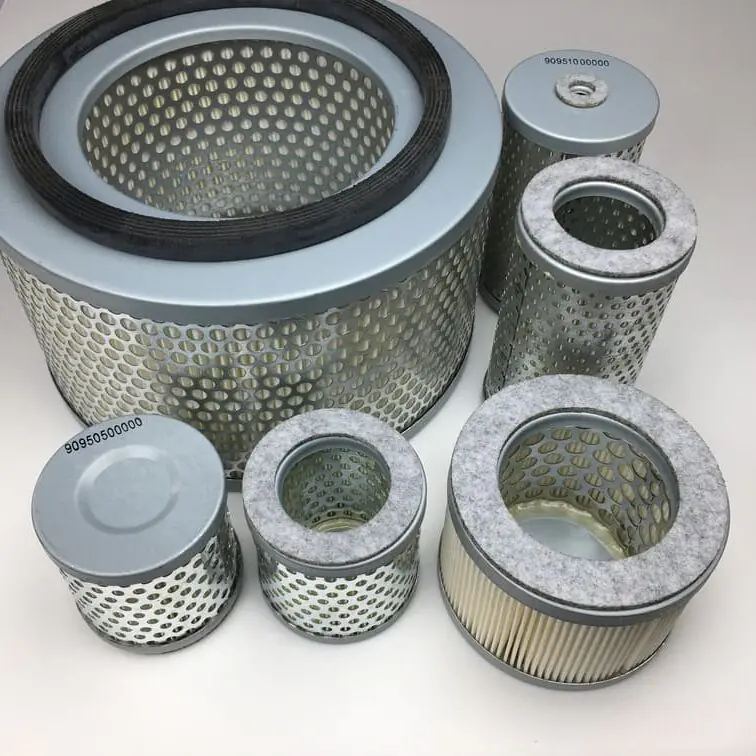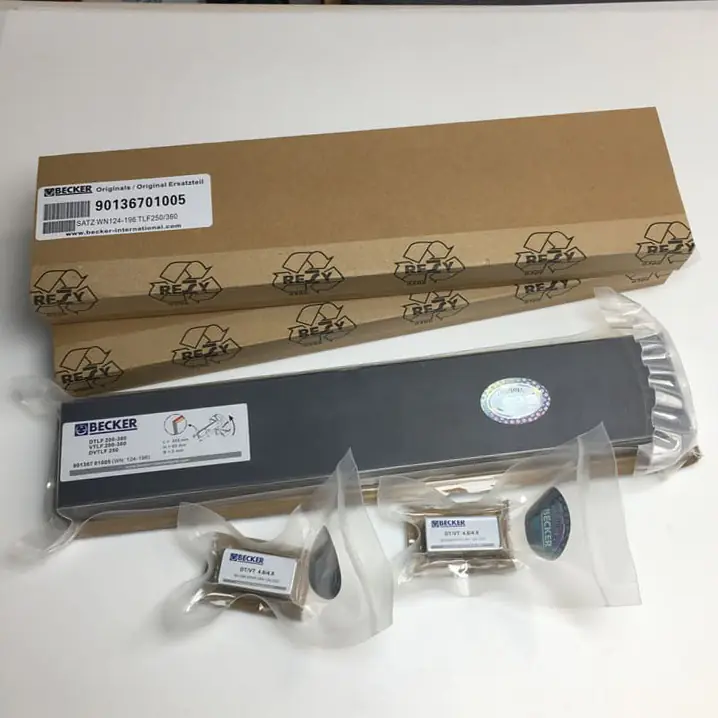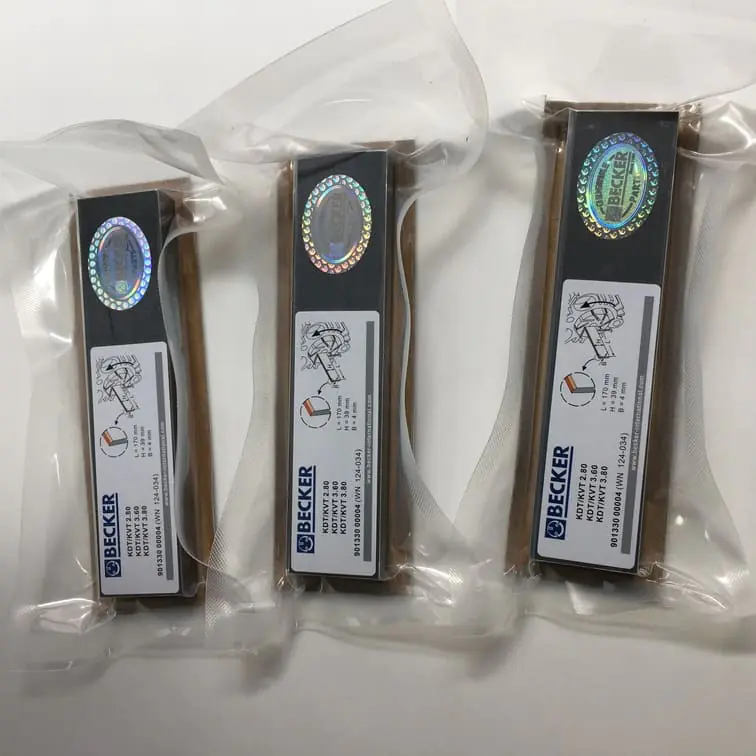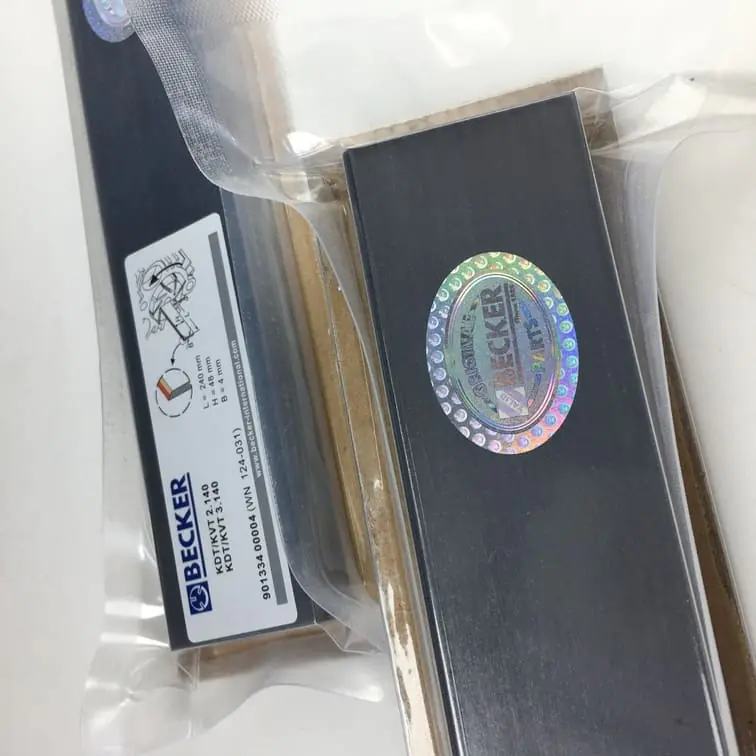What Kind of Oil Does a Vacuum Pump Use?
Vacuum pumps are essential components in a wide range of industrial and commercial applications, from HVAC systems to manufacturing and medical industries. To keep these pumps functioning optimally, it’s vital to choose the correct type of oil for lubrication and efficiency. This article will guide you through the types of oils that are suitable for vacuum pumps, including mineral oil, synthetic oil, and compressor oil. Understanding the differences and requirements for each type of oil will help ensure that your vacuum pump operates smoothly, prolonging its lifespan and improving performance.
Importance of Oil in Vacuum Pumps
The oil used in a vacuum pump serves several critical functions. It provides lubrication, cooling, and sealing capabilities, ensuring that the internal components of the vacuum pump operate without unnecessary friction or wear. The type of oil used can significantly impact the efficiency of the vacuum pump, affecting how effectively it reaches the desired vapor pressure and vacuum levels.
Functions of Vacuum Pump Oil
- Lubrication: One of the most important roles of vacuum pump oil is to reduce friction between moving parts. This minimizes wear and extends the life of the pump.
- Sealing: Vacuum pump oil also forms a seal between the rotor and the housing in rotary vane pumps. This seal is crucial for maintaining a high level of vacuum.
- Cooling: As the vacuum pump operates, it generates heat. The oil helps to dissipate this heat, ensuring that the pump does not overheat and remains efficient.
Choosing the right kind of oil is essential to achieving these functions effectively. Different applications and pump types may have unique oil requirements, which will be discussed further in this guide.
Types of Vacuum Pump Oils
The kind of oil a vacuum pump uses depends on various factors, including the pump type, application, and operating conditions. Here, we break down the primary types of vacuum pump oils and their applications.
1. Mineral Oil
Mineral oil is one of the most commonly used types of vacuum pump oil, particularly for rotary vane pumps. Derived from refined petroleum, mineral oils are popular for their cost-effectiveness and general performance.
- Applications: Mineral oil is suitable for a wide range of vacuum pump applications, including industrial processes and laboratory settings.
- Advantages: Affordable, easily available, and effective in most low-to-medium vacuum applications.
- Disadvantages: Mineral oil may not be suitable for extreme operating conditions, such as high temperatures or very low pressures, due to its susceptibility to degradation.
2. Synthetic Oil
Synthetic oil is manufactured chemically to provide enhanced properties compared to mineral oils. These oils are known for their high thermal stability and resistance to chemical breakdown, making them ideal for more demanding environments.
- Applications: Synthetic oils are preferred in high-temperature applications or processes that require extremely low vapor pressure.
- Advantages: Extended lifespan, high thermal stability, and better performance under extreme conditions.
- Disadvantages: Typically more expensive than mineral oils, and not all vacuum pumps are compatible with synthetic oils.
3. Compressor Oil
Compressor oils can also be used in certain vacuum pumps, particularly those that need to handle more intensive operating cycles or higher load capacities.
- Applications: Suitable for heavy-duty vacuum pumps, particularly in industrial settings where the equipment runs continuously for extended periods.
- Advantages: High viscosity index, better lubrication under stress, and strong resistance to oxidation.
- Disadvantages: Compressor oils may not be ideal for applications requiring high purity or low contamination, as they could leave residues.
| Type of Oil | Best Applications | Advantages | Disadvantages |
|---|---|---|---|
| Mineral Oil | Rotary vane pumps, general use | Cost-effective, widely available | Degrades at high temperatures |
| Synthetic Oil | High-temp or low-pressure | High thermal stability, long-lasting | Expensive, compatibility concerns |
| Compressor Oil | Industrial, heavy-duty | Good lubrication, high load capacity | Possible residue contamination |
Choosing the Right Oil for Your Vacuum Pump
Considerations for Selecting the Best Oil
When selecting the correct oil for your vacuum pump, consider the following factors to ensure optimal performance and efficiency:
1. Type of Vacuum Pump
Different vacuum pumps have different oil requirements:
- Rotary Vane Pumps: Typically use mineral oil or synthetic oil depending on the application demands.
- Oil-Sealed Pumps: These require a specific oil that can maintain a seal and withstand the operating conditions without breaking down.
2. Operating Temperature
If your vacuum pump operates at high temperatures, it is advisable to use synthetic oil due to its superior thermal stability. Synthetic oils maintain their properties at high temperatures, reducing the risk of breakdown and increasing the pump’s lifespan.
3. Chemical Compatibility
Some applications require vacuum pumps to handle reactive gases or chemicals that may interact with the oil. In such cases, choosing an oil that is chemically inert or highly resistant to chemical reactions is crucial. Synthetic oils are often recommended in these scenarios for their enhanced chemical resistance.
Importance of Vapor Pressure in Oil Selection
Vapor pressure is a crucial property of vacuum pump oil. The lower the vapor pressure, the better the oil is at achieving and maintaining a high vacuum. Oils with a high vapor pressure can lead to contamination of the vacuum and affect the efficiency of the pump.
- Low Vapor Pressure Oils: These are preferred for high-vacuum applications, as they ensure minimal backstreaming into the vacuum system.
- High Vapor Pressure Oils: These may be suitable for less demanding applications, but they can lead to compromised vacuum performance if used improperly.
For in-depth specifications and assistance on choosing oil for your vacuum pumps, visit Vacuum Pump Parts.
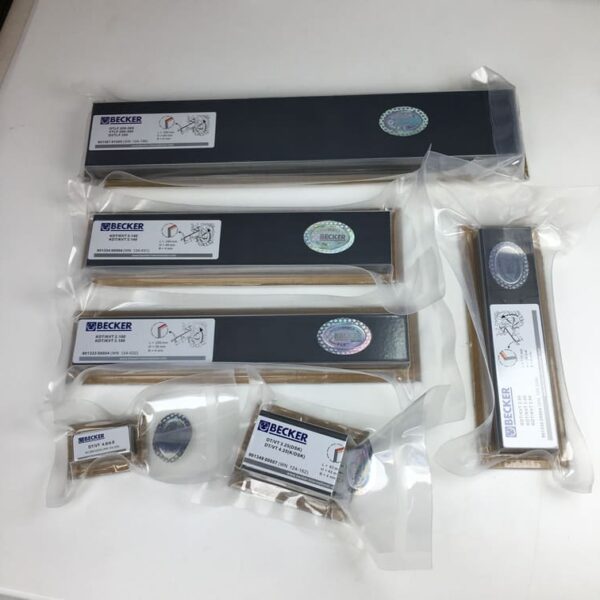
Maintenance and Replacement of Vacuum Pump Oil
Regular maintenance and oil replacement are key to keeping your vacuum pump running smoothly. Here are some practical steps and tips:
1. Monitoring Oil Quality
Over time, the oil in a vacuum pump will degrade, especially if exposed to contaminants or extreme conditions. Oil monitoring is essential to assess whether the oil is still effective or needs replacement.
- Color and Clarity: Fresh oil is usually clear. If the oil appears dark or cloudy, it’s time for a change.
- Viscosity Changes: A change in viscosity can indicate contamination or breakdown of the oil. If the oil becomes too thin or thick, it should be replaced.
2. Frequency of Oil Changes
The frequency of oil changes depends on the type of pump, the operational environment, and the workload:
- Light Usage: For pumps used sporadically, oil changes may be required every 3-6 months.
- Heavy-Duty Usage: Pumps running continuously in industrial settings may need oil changes every 500 hours or even more frequently.
3. Best Practices for Oil Replacement
- Draining the Oil: Ensure the pump is warm before draining the oil. This helps to remove any accumulated contaminants.
- Cleaning the System: Use a flush oil to clean the internal components of the pump. This removes any old oil residues that might contaminate the new oil.
- Refill with the Correct Oil: Make sure you use the right type and grade of oil for your vacuum pump, as specified by the manufacturer.
Explore our selection of vacuum pump maintenance tools at Vacuum Pump Parts for high-quality oil and spare parts.
Benefits of Using High-Quality Vacuum Pump Oil
The use of high-quality vacuum pump oil has numerous benefits, including improved pump efficiency, longer operational life, and enhanced vacuum quality. Here are the major advantages:
- Enhanced Efficiency: Proper oil ensures that all moving parts are well-lubricated, reducing energy consumption and improving the overall efficiency of the pump.
- Longevity: High-quality oil reduces wear and tear, extending the life of both the pump and its components.
- Better Sealing: Oils that maintain good viscosity at varying temperatures help maintain a better seal, leading to a more effective vacuum.
For heavy-duty rotary vane pumps, using the correct oil is not just an operational requirement but a determinant of the lifespan and performance of your equipment.
FAQs
1. What kind of oil does a rotary vane vacuum pump use?
Rotary vane vacuum pumps typically use mineral oil or synthetic oil. Mineral oil is sufficient for general applications, while synthetic oil is used for high-temperature or chemically reactive environments.
2. How often should I change vacuum pump oil?
The frequency of oil changes varies. For light usage, you might need to change the oil every 3-6 months. For continuous operation, an oil change may be required every 500 hours.
3. Can I use synthetic oil in any vacuum pump?
Not all vacuum pumps are compatible with synthetic oil. Always consult the pump manufacturer’s guidelines to determine if synthetic oil is appropriate for your pump.
4. What happens if I use the wrong type of oil in my vacuum pump?
Using the wrong type of oil can lead to increased wear, reduced efficiency, and even pump failure. It is essential to use the oil recommended by the manufacturer.
5. Why is vapor pressure important in vacuum pump oil?
Vapor pressure is important because it determines how effectively the oil can maintain a vacuum. Low vapor pressure is ideal for achieving a higher and cleaner vacuum.
Conclusion
Selecting the right oil for your vacuum pump is crucial to maintaining its performance, efficiency, and longevity. Whether you are using mineral oil, synthetic oil, or compressor oil, each has its advantages and suitable applications. The vapor pressure, thermal stability, and chemical compatibility of the oil are key factors that should guide your choice.
Regular oil maintenance, including quality monitoring and timely replacements, will help in ensuring that your vacuum pump functions optimally and has a long service life. High-quality vacuum pump oil enhances not just the performance of the pump but also ensures greater operational safety and efficiency.
If you need guidance on selecting the best oil or require vacuum pump parts and maintenance tools, visit Vacuum Pump Parts. Keeping your equipment well-maintained ensures that you get the best results, whether you’re operating in a small laboratory or a large industrial setting.

